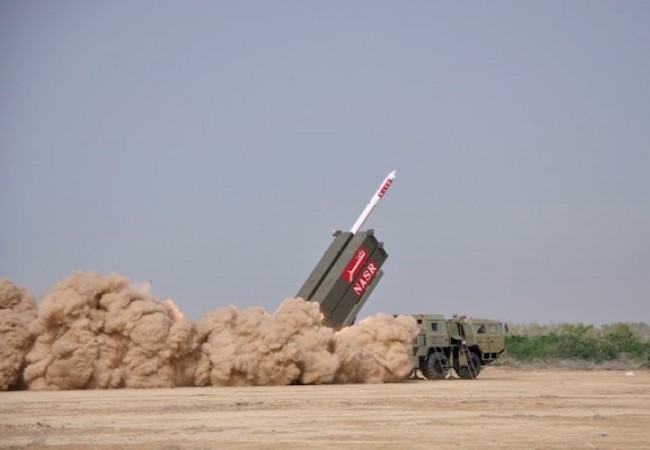Youm-e-Takbeer: The Day of Greatness

By Zain Moeed
The month of May 1998 transformed South Asian strategic dynamics when India and Pakistan demonstrated nuclear weapon capability in a tit for tat fashion. On 28 May 1998 Pakistan conducted a series of nuclear tests as a direct consequent of Indian nuclear detonation earlier that month. PM Nawaz Sharif stated, “If India had not exploded the bomb, Pakistan would not have done so. Once New Delhi did so, we had no choice because of public pressure.”
The question of why Pakistan went nuclear despite severe economic and political constraints has always fascinated western epistemic community. In order to provide plausible argument, academics and policy makers have largely utilized realist framework to address Pakistan’s nuclear quest and much coined security consciousness along with balance of power remained core logic. This logic carries weight in the sense that, India and Pakistan cherished long history of violence and frequent border skirmishes also add to fragility. Therefore, India nuclear test first in 1974 and again in 1998 compelled Pakistan to develop its own nuclear muscle.
However, Scott D. Sagan’s “Why Do States Build Nuclear Weapons? Three Models in Search of a Bomb” provides comprehensive insight into states’ motivations behind nuclear weapon. Sagan, in his paper, proposes three distinctive theoretical frameworks which he terms “Models” about why states acquire nuclear weapon capability. These models, according to Sagan are, the security model, the domestic politics model and the norms model.
Pakistan’s nuclear capability falls in the category of security model. According to this model, the primary impetus behind state’s nuclear quest is security. Pakistan build its nuclear weapons capability to increase national security against foreign threats, especially nuclear threats emanating from India. India’s overt nuclear detonation drastically increased Pakistan’s security consciousness.
India also didn’t forget to warn Pakistan on Kashmir issues. After successful detonation of nuclear devices on May 11 and 13, the then Indian Home Minister L.K. Advani called on Pakistan to “realise the change in the geo-strategic situation in the region”.
Despite international uproar, Pakistan’s nuclear explosion met with immense support at domestic level, people came out chanting slogans in favor of nuclear bomb. Pakistan successfully neutralized India’s aggressive hegemonic design by reciprocating nuclear tests.
Since then, nuclear deterrence has played vital role in South Asian strategic stability. Pakistan celebrates Youm-e-Takbeer every year on May 28 to commemorate the historic nuclear tests which is indeed a reminder of the struggle and great odds that Pakistan overcame and emerged as first Muslim nuclear weapon state on world map.
However, its pertinent to note that Pakistan has always been a reluctant participant in South Asian nuclear arms race. When India surprised much of the world by detonating its first nuclear device, code named as “Smiling Buddha” on May 18, 1974, Pakistan brought a draft proposal before the United Nations for a nuclear weapon-free zone in South Asia. It’s quite evident that decision makers in Islamabad were quite aware of repercussions of nuclear arms race in the region. Pakistan, in 1978 also proposed a joint Indo-Pak declaration renouncing the acquisition and manufacture of nuclear weapons. During very next year, Pakistan proposed to India mutual inspections by India and Pakistan of nuclear facilities.
Above all, in 1979, Pakistan offered simultaneous adherence to the NPT by India and Pakistan. However, these proposals met with cold feet by India which not only diminished prospects for nuclear arms control in the region but also compelled Pakistan to become part of nuclear arms race.
Indian ambitious great power status left Pakistan with no other option but to restore balance of power by conducting nuclear test. Unlike India, Pakistan does not harbor any aggressive global design rather, its nuclear capability is solely defensive.
For quite long time, Pakistan has been following strategic restraint. However, India has been massively expanding its conventional and nuclear stocks with a dangerous ambition to dominate South Asia. A responsible nuclear Pakistan is well aware of sensitivities associated with such adventurism. Therefore, it has never encouraged large scale military modernization.
Being a responsible state, Pakistan believes in peaceful coexistence but it requires serious efforts to settle longstanding disputes such as Kashmir. Peace and prosperity in the region is directly associated with Kashmir dispute. However, BJP-led government in India is reluctant participant.
Nonetheless, South Asia can be stopped from moving towards nuclear brinkmanship if India and Pakistan follow a comprehensive peace process for the greater benefit of billions of people living on either side of border. Peaceful settlement of disputes is only way forward. Nuclear capabilities of both countries can deter each other but it won’t settle disputes but a sincere composite dialogue will.
Zain Moeed is a Current affairs student who holds a Master’s in Business Administration from NUST, Islamabad.




